TPS Holders Search for Solutions After Trump Ends Protections
Rendered deportable during Trump’s second term, hundreds of thousands of TPS recipients—who fled dire conditions at home—seek legal paths to remain in the U.S.


Temporary Protected Status recipients Mariana and Antonio pose for a photo on the dock of a marina on Tuesday, June 24, 2025, in Aventura, Fla. Natives of Venezuela, the two could soon lose TPS – and potentially be forced to leave the U.S. They asked that their full names not be used because of concerns it could hurt their efforts to remain in the country. (Photo by Abigail Wilt/News21)
MIAMI — In the streets of downtown Caracas, Venezuela, university student Mariana stood alongside her family in a sea of yellow, red and blue. She was among other Venezuelans protesting an oppressive regime controlling the country.
“Hay que estudiar, hay que estudiar, el que no estudia se parece a Nicolás,” the crowd chanted. “We must study, we must study, the ones who don’t will be like Nicolás.”
Their cries declared their disdain for dictator Nicolás Maduro.
It wasn’t long until the military intervened, sparking violence and unrest. As Mariana sought refuge, a man got out of his car and stopped her—and pointed a gun at her head.
Her shock drowned out the chaos around her. All she heard was her father screaming her name.
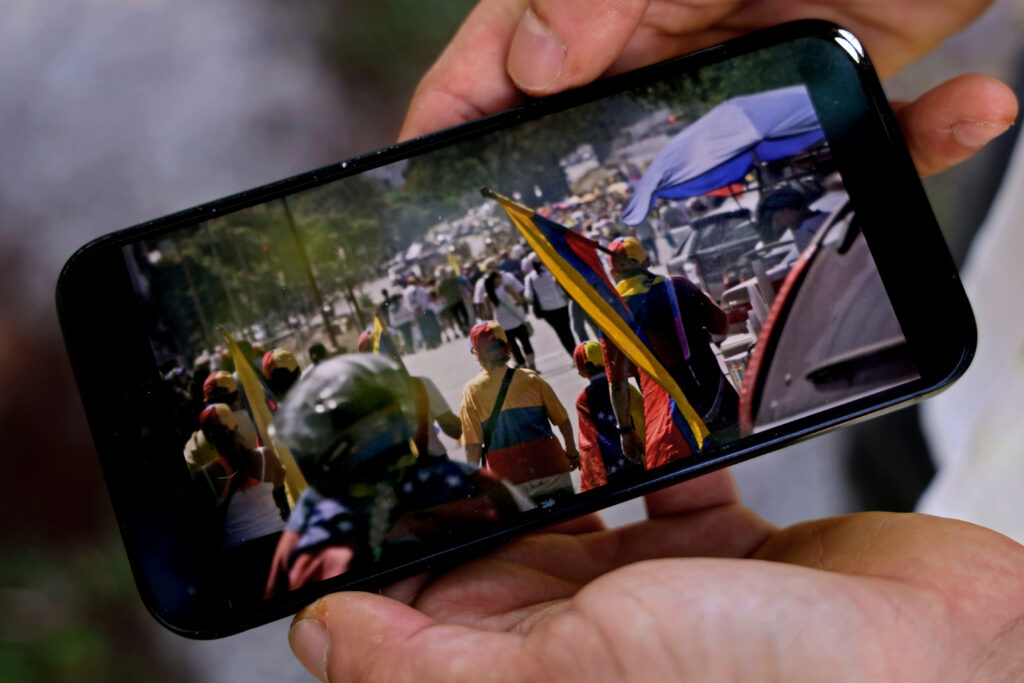
“We were very used to violence and guns and crime being part of the day by day in the city,” Mariana recalled, adding that the man quickly returned to his car and drove away. “It was not really that shocking.”
Four years later, while on vacation in Miami with her boyfriend, Antonio, Mariana heard something on the radio about a new immigration benefit for Venezuelans fleeing the country amid food shortages, kidnappings and repression.
The conditions, the U.S. homeland security secretary said at the time, “reveal a country in turmoil, unable to protect its own citizens.”
Mariana and her boyfriend decided to stay in the United States and restart their lives—safe from harm—through what’s known as Temporary Protected Status, or TPS.
DHS has said conditions in the likes of Venezuela, Taliban-controlled Afghanistan and violence-riddled Haiti have improved enough to be safe for beneficiaries to return.
Today, like hundreds of thousands of others, the couple face the unimaginable idea of having to give up that new life.
As part of the Trump administration’s sweeping immigration agenda, the Department of Homeland Security has acted to terminate TPS for recipients from Afghanistan, Cameroon, Haiti, Honduras, Nepal, Nicaragua and Venezuela.
People from Venezuela and Haiti make up the vast majority of those losing status.
In April, DHS ended TPS for 350,000 Venezuelans, which meant work permits and protection from deportation were no longer valid. On Feb. 3, TPS is set to end for nearly 350,000 Haitians.
And this Wednesday, Sept. 10, is the deadline for the designation to end for another 250,000 Venezuelans—including Mariana and Antonio—who would then have about 60 days to figure out what comes next.
Amid ongoing legal wrangling, a federal judge on Sept. 5 found the administration’s actions unlawful and blocked it from ending protections for Venezuelans and Haitians.
As the court battles go on, some beneficiaries have holed up in their homes, fearful of arrest and deportation, while others scramble to find legal alternatives—or face losing everything.
Florida is home to more TPS recipients than any other state in the country—people such as Rafael Rodriguez, a former civil engineer and college professor from Valencia, Venezuela. He has gone from servicing a major cruise liner to barely leaving his home because he now is considered deportable. He obtained TPS in 2023; without it, his life in North Miami has transformed from one of prosperity to, in his estimation, a “prison.”
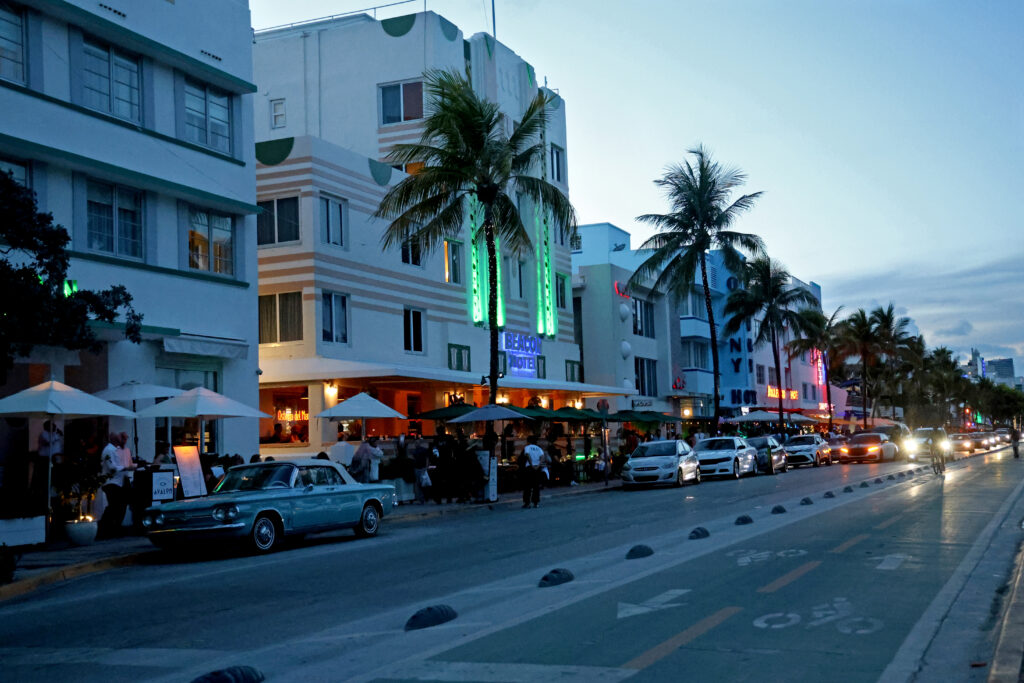
Sebastian, an architect also from Valencia, left Venezuela because of government oppression and dwindling career prospects. He obtained TPS in 2024, after fleeing to North Miami. For him, it was a “lifesaver.” And the loss of the benefit, he said, is the loss of his pursuit of “the American dream.”
Since 2021, Mariana and Antonio have lived in Aventura, north of Miami. They both started careers in finance, the subject they studied together in university back in Venezuela. For the couple, looming TPS expiration has made it nearly impossible to plan for their future.
“It has given me anxiety, a lot of sadness, a feeling of injustice,” said Mariana—who, along with Antonio and Sebastian, asked that her full name not be used because of concerns it could hurt her efforts to remain in the country.
“I feel like my life is on hold.”
‘America is not perfect, but it was human’
TPS began in 1990 as a way to protect individuals fleeing armed conflict, natural disasters or other unlivable conditions in their home countries. The status provides work permits and deportation protection for up to 18 months—and can be renewed at the discretion of the U.S. homeland security secretary.
As of Sept. 30, 2024, some 1.1 million people were protected by the benefit.
To qualify, individuals must meet several conditions, pay a fee that this year went from $50 to $500, and have never been convicted of a felony or two misdemeanors. These requirements, experts say, make holders of the humanitarian benefit some of the most vetted immigrants in the country.
TPS holders are waiting to see how ongoing court challenges shake out before making a final decision; several organizations have filed lawsuits in their defense, and that litigation continues.
“They are not criminals. They are not illegal,” said Adelys Ferro, executive director of the Venezuelan-American Caucus in Miami. “So, what is this about?”
In a January interview with Fox News, Homeland Security Secretary Kristi Noem announced the end of TPS for some Venezuelans, saying a Biden-era extension of the benefit meant “they were going to be able to stay here and violate our laws for another 18 months, and we stopped that.”
Noem referred to Venezuelans who were in the country legally—and those of the Tren de Aragua criminal enterprise—in the same breath, saying, “We are going to follow the process, evaluate all of these individuals that are in our country, including the Venezuelans that are here and members of the TDA (…) The people of this country want these dirtbags out.”
In official announcements explaining the end of TPS, the agency has said conditions in some of the countries, including Taliban-controlled Afghanistan and violence-riddled Haiti, have improved enough to be safe for beneficiaries to return.
In the case of Venezuela, Secretary of State Marco Rubio issued a statement in July titled “Standing with the Venezuelan People” in which he denounced the regime of dictator Maduro as “corrupt, criminal and illegitimate.” The DHS, though, says that “notable improvements” in the economy, public health and crime prevention “allow for these nationals to be safely returned to their home country.”
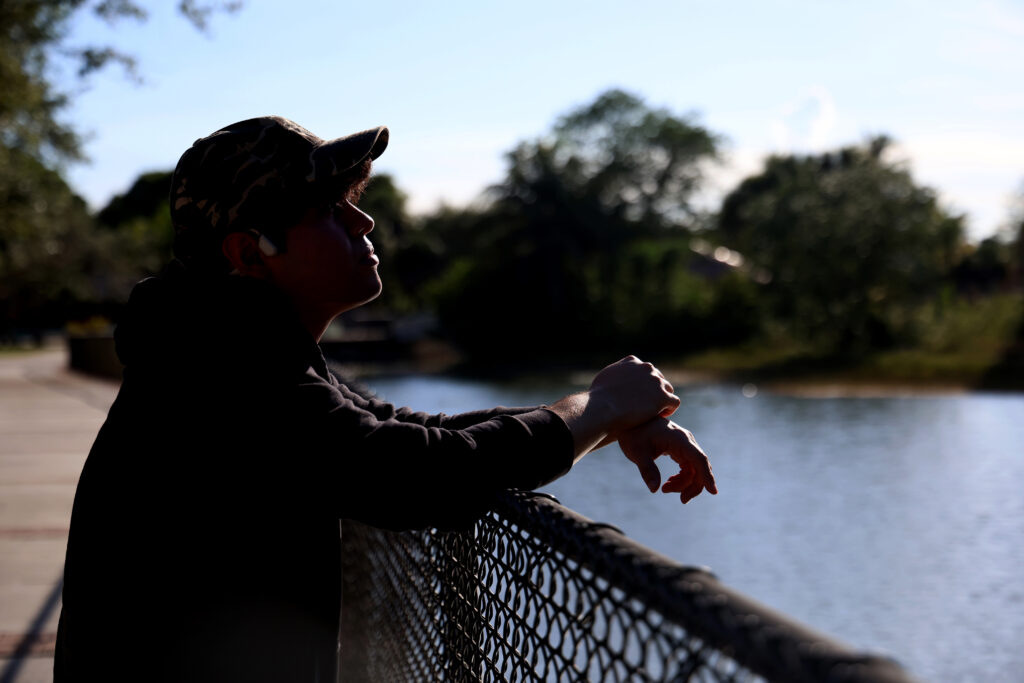
The State Department restricts travel to and from Venezuela, Haiti and Afghanistan with Level 4 travel advisories, the highest issued by the agency, warning of “life-threatening risks.”
Homeland Security also argues that it is against the “national interest” of the United States to allow many of these TPS recipients to remain. But to many advocates, that’s code for something else.
“Is it just racism? Is it just xenophobia? Is it just because we are brown and Black? Is this just about making America white again?” Ferro asked. “Why (is) America becoming this absolutely unrecognizable picture of what it was?”
“America is not perfect,” she added, “but it was human. Now it’s not.”
‘There’s only so much we can do’
The city of Doral, nicknamed “Doralzuela,” is home to some 30,000 residents of Venezuelan descent. Store owners are more likely to greet you with “¿Cómo estas?” than “How are you?” Arepas are common menu staples.
Today, Miami’s cultural enclaves lack the bustle that once characterized them.
In North Miami, Rodriguez, the former civil engineer and professor, hides in his home with two cats and his wife, who also lost her legal status when the Trump administration canceled a different humanitarian program. The fear of immigration raids or being stopped by police keeps their lives confined to the walls of their condominium; they leave only once a week, to buy groceries.
“You feel like the net is closing around you,” Rodriguez said, “and there is nothing you can do.”
“Immigration courts become, unfortunately, a place where you can be detained.”
With their work permits no longer valid, he and his wife draw from their savings to live.
If he can, Rodriguez will pursue a national interest waiver, which allows professionals who hold an advanced degree or have “exceptional” abilities to more quickly gain legal status. If that’s not possible, he and his wife will self-deport, possibly to Spain.
They are waiting to see how ongoing court challenges shake out before making a final decision; several organizations have filed lawsuits in defense of TPS recipients, and that litigation continues.
“We want to do it legally,” Rodriguez said. “But it’s very hard to hear people trying to say, ‘Oh, come here legally,’ when the system is broken.”
Sebastian, the architect, is seeking an employment-based visa, but if it isn’t approved, he said, he will self-deport. He would leave behind his uncles, cousins and friends.
“I believe the majority of the (TPS) community is doing things right—we’re not criminals,” he said. “We are trying to make our voice heard and show the American people we deserve to be here. We need to be here.”
At the national level, two bills pending in Congress propose a pathway to legal permanent residency for TPS recipients.
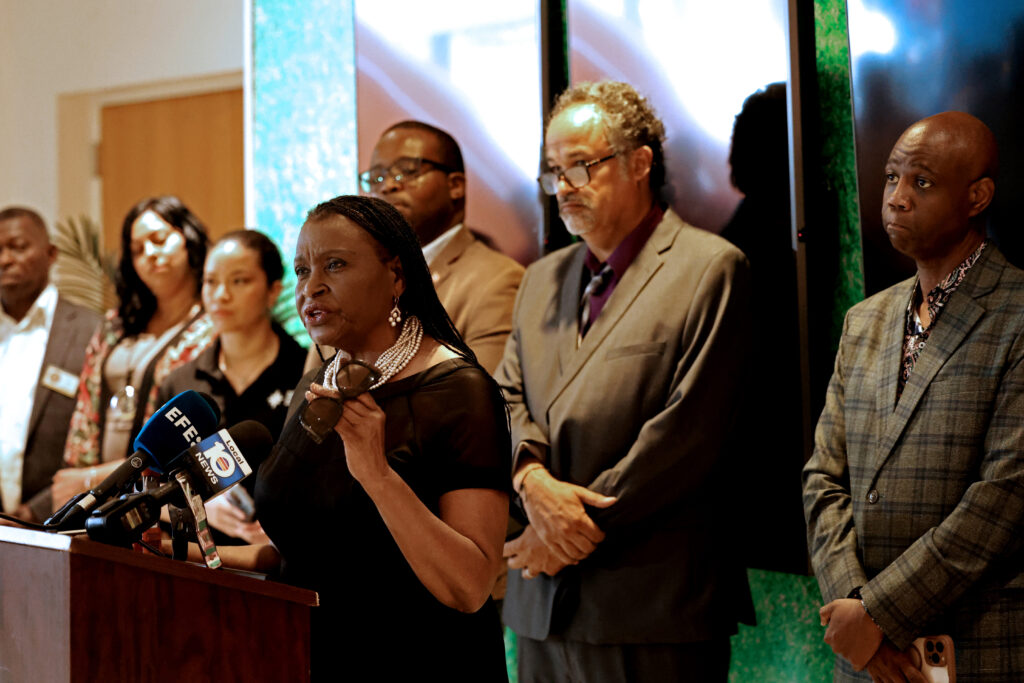
And though advocacy organizations are doing their best to help TPS recipients find legal alternatives to stay, options are limited.
John De La Vega is a Miami-based immigration lawyer who counsels Venezuelan TPS recipients. Lately, his work has centered on helping his clients adjust their status to remain in the U.S.
“It’s very limited, because with a short amount of time, they have to be able to look for other options,” he said. “It’s very stressful, because they do not know what’s going to happen tomorrow.”
The first thing he asks clients is whether they have a relative who could petition on their behalf for permanent residence. For example, a U.S.-born person over the age of 21 could petition for their parent. Citizen spouses of TPS recipients may also petition for them.
If none of those options is available, De La Vega encourages his clients to apply for asylum. Some TPS recipients have already done so, but many never applied—assuming they were “safe” under Temporary Protected Status.
Mariana and Antonio spend much of their time consulting with lawyers and sifting through legal options.
Though asylum can lead to permanent residency, applying also comes with risks. In addition to the multimillion-case backlog that has slowed the process, if a TPS recipient whose status has been terminated appears in court for a hearing, they could be placed in removal proceedings if asylum is denied.
Said Oscar Mendoza, an immigration attorney in Dallas: “Immigration courts become, unfortunately, a place where you can be detained.”
‘We dream of a normal life’
Over the past four years, Mariana and Antonio built new lives in the U.S. With their work permits, Mariana landed a job as an operations analyst at a wealth management firm, while Antonio found work as a retail banker dealing with personal and business accounts.
While they cherish their Venezuelan traditions—such as eating arepas almost every day for breakfast—they have adopted American customs. The couple host Thanksgiving at their apartment every year and even learned how to make a turkey.
They envision a future not unlike that of many Americans. They want to continue flourishing in their careers, get married, buy a house with a big backyard and have kids. “That’s normal life,” Mariana said. “We dream of a normal life.”
But for now, they can’t see any future beyond Sept. 10, the date their TPS is set to expire.
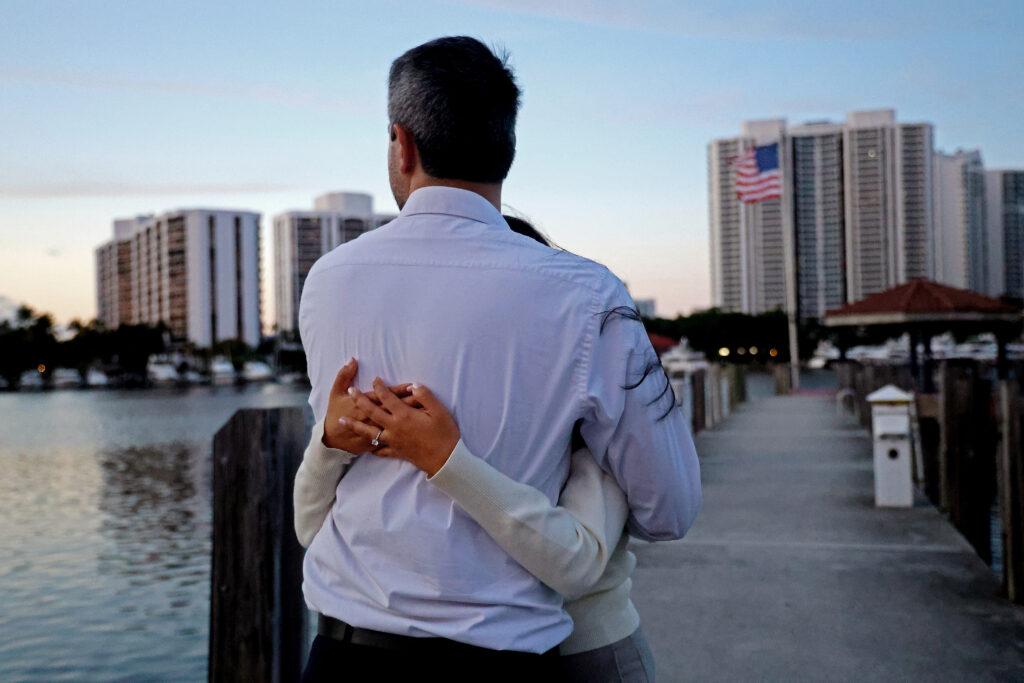
Mariana and Antonio spend much of their time consulting with lawyers and sifting through legal options.
“This immigration thing has taken over our entire lives,” Mariana said.
She said her company wants to support her, so she has looked into obtaining certification that allows employers to hire foreign workers to work permanently in the United States. The couple have also explored student visas as an option.
The two recently applied for master’s programs at a university in Miami. Mariana was accepted into her program and starts classes this month. Antonio was accepted but later found out the university was unable to grant him a visa. He is now applying for asylum, despite the risks.
If their plans fail, they will move to Spain.
“This used to be a place that welcomed people, people willing to work hard,” she said. “And I thought, ‘Of course, I’m going to make it there. The doors are going to be open.’
“That was the case for years, and now it’s not. It has made me very sad about what I thought of this country.”
This report is part of “Upheaval Across America,” an examination of immigration enforcement under the second Trump administration produced by Carnegie-Knight News21. For more stories, click here to visit our website.
Caracas Chronicles is 100% reader-supported.
We’ve been able to hang on for 22 years in one of the craziest media landscapes in the world. We’ve seen different media outlets in Venezuela (and abroad) closing shop, something we’re looking to avoid at all costs. Your collaboration goes a long way in helping us weather the storm.
Donate




